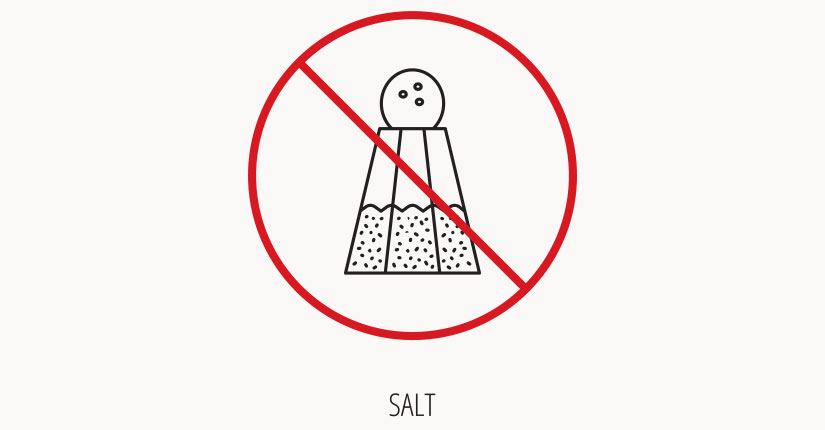10 Reasons Why Everyone Should Undergo Regular Health Checkups
By Aadarsh Sharma 22-Aug 2020 Reading Time: 11 Mins

There were days when the mere idea of visiting the doctor for a regular health checkup made me cringe.
Have you also felt the same?
Research has shown that there are about a million reasons to go to the doctor and about a million excuses to avoid it.
Studies reveal that over one-third of participants “reported unfavourable evaluations of seeking medical care,” while others felt they had no reason to seek care. At the same time, some expected their illnesses to go away on their own.
Time and again, my doctor insisted me to take regular health checkups, but I never bothered until one day I experienced severe chest pain.
It was too young to get diagnosed with high BP. I always thought that I was too healthy to get sick but soon realised the importance of good health. After learning this the hard way, I have been able to comprehend this old saying ‘ounce of prevention is worth a pound of cure’.
I have learned the hard way and would recommend everyone to stay up-to-date with preventive healthcare and lead a healthy lifestyle. Let me give you a few reasons to undergo health checkups regularly.
- Detects diseases in early stages
We are aware of the fact that cancer is curable when detected early. To be precise, the survival rate of stage 1 cancer is 100% while that of stage 2 is 93%. The numbers decrease as the disease progresses to stage 4.
Ultimately, regular health checkups are essential to keep track of your health. Diseases, when detected early, can increase the chances to fight the disease before it becomes worse.
- Reduces health care costs
The cost of not going for a checkup is even higher in the long run. If you consider going for regular health checkups, then you’re likely to get diagnosed and treated successfully without costing much. It’s better than shelling out a considerable sum in the later stages.
Also, think about how much you will save if you get treated early? Take charge of your health and book an appointment today!
- Helps to keep clear clinical records
A clear medical history can be used as a reference in case of any emergency in the future. Doctors get a more accurate overview of your condition and help in making informed decisions about your health. There’s nothing wrong in maintaining a detailed health record. In an emergency situation, it may also help in claiming insurance money.
- Identify blood test results
A blood test is like a gauge to reveal measures of diseases such as heart disease or diabetes that may not have obvious symptoms. Regular health screening should be done to prevent any blood-related diseases, including HIV/AIDS, anaemia, diabetes, cholesterol, high blood lipid, etc. I would suggest women undergo the following blood tests:
Blood sugar test- Check your fasting glucose level over the last three months, once a year or more often (if your BP is high).
Lipid panel- Get tested once a year or ask your doctor about testing frequency.
Thyroid-stimulating hormone (TSH) and T4 test- For patients over 60 years old, get your levels checked frequently if you have symptoms of hypothyroidism or hyperthyroidism.
Vitamin D test – Consult your doctor since the frequency may differ based on age, diet, and level of sun exposure.
- Maintain a healthy cervix
Annual pelvic examinations are a pivotal part of every woman’s preventative health care. It allows to trace vaginal infections and understand the risk of contracting sexually transmitted diseases and get a Papanicolaou test (AKA PAP smear) for cervical cancer screening.
Every woman who is younger than 21 years old should undergo pelvic exams to discuss safe sex behaviours, birth control options, etc.
- Trace stress-related diseases
Today, everyone has a hectic lifestyle that can trigger both physical and psychological diseases. Diseases like Alzheimer, hypertension, asthma, high blood pressure, obesity, mental disorders and likewise should be detected earlier before they get too severe.
According to a recent report by the Centers for Disease Control and Prevention (CDC), about 64% of men said they visited a physician within the previous six months.
- Get a good sleep
A new poll from the National Sleep Foundation found that Japan and the United States report the least amount of sleep. Americans are reported to sleep about 30 to 40 minutes less on workdays than the six countries included in the study. This doesn’t end here.According to the NIH, 30%-40% of Americans report having occasional symptoms of insomnia and 10%-15% report chronic difficulty sleeping. Chronic sleep disorders result in long-term risk of hypertension, diabetes and depression. Visit your doctor at the earliest to identify underlying issues to get the mandatory 7 to 9 hours sleep for adults.
- Increase life span
Regular health checkups make you assured of how healthy you are. Taking up regular health checkups can increase your lifespan by improving your health and preventing it from deteriorating.
- Establish a good relationship with your physician
Visiting the same physician can establish a better communication channel to optimise long-term health outcomes. Having a strong patient-physician partnership makes you feel more comfortable as the doctor is aware of your history and makes it easier for the doctor to set the right course of treatment.
- Makes you more aware of your health
Many people have no clue of their regular health stats like blood pressure, cholesterol level, sugar levels, Vitamin D, thyroid and likewise. If you are well-acquainted with these numbers, then you can change your lifestyle and follow a healthy diet.Going for periodic health checkups will automatically make you more aware and lead to a healthier lifestyle.
So, when I received my medical reports and found out that I had diabetes some months after facing BP issues. I made up my mind to let go of all my other businesses and made health checkups a priority.
Your doctor will advise you some dos and don’ts regarding your lifestyle and dietary choices. If you’re not aware of your illness, then you would continue following the same routine. Smokers won’t quit smoking unless they are detected with heart or lung diseases.
Thus, annual checkups and regular screenings are essential. Additionally, visiting the same physician can establish a better communication channel to optimise long-term health outcomes.
Summing it up!
While researching for this blog, I came to know that the life expectancy in the US was 47 years. The leading cause of death was influenza, pneumonia, diarrhoea and other deadly diseases like cancer.
Fortunately, we have managed to increase our life expectancy over time, but we’re not truly capable of living longer. Even before the COVID-19, deaths caused due to infection is the 8th leading cause of deaths.
There’s no doubt that early detection and treatment can save lives and also improve life expectancy. Before you consult your primary care physician for a full body checkup, make sure you share this blog and educate others. Till then, take care!


















